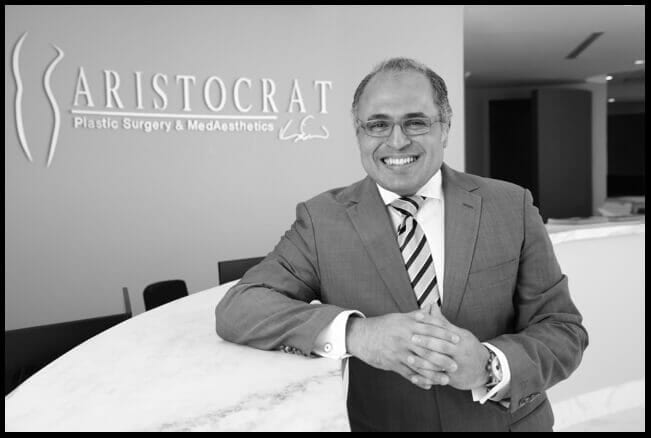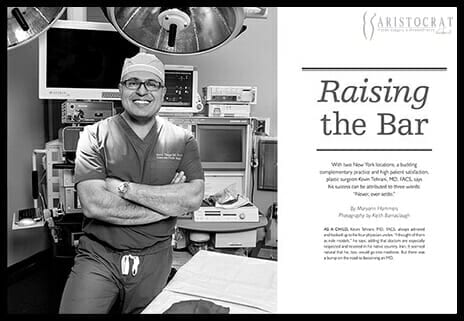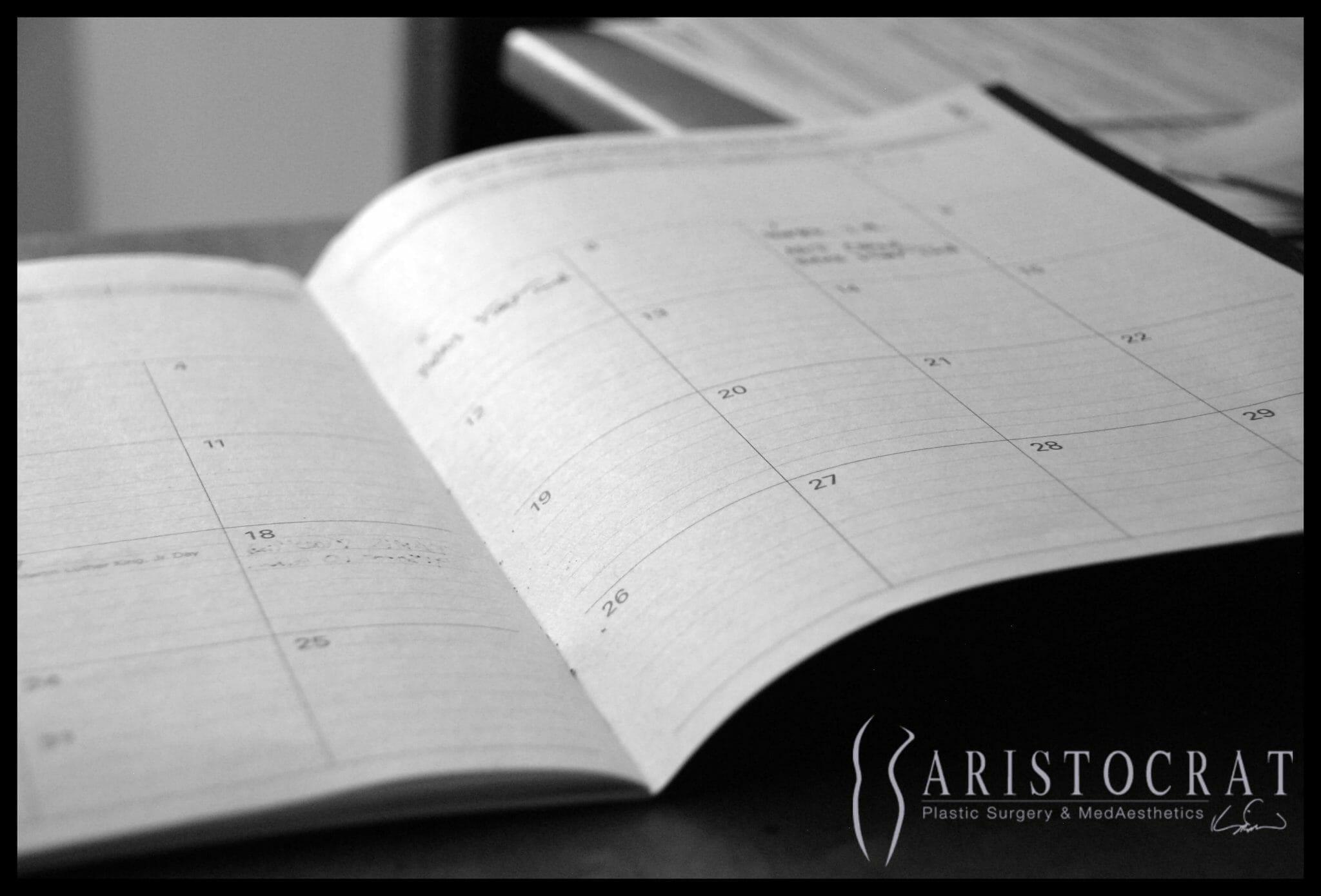Is Plastic Surgery Safe? It Is, As Long As You Follow These 7 Rules
If you’ve tried Googling the side effects and potential risks of any surgery—let alone a major one, such as tummy tuck—you’re probably rethinking your decision of going under the knife.
We’re not going to deny those risks and side effects.
Even though most serious complications are extremely rare, they are serious, and should be taken into account.
However, the world of surgical complications is far from being black-and-white.
The biggest problem with the way the internet presents these complications is that it seems like all people have a predetermined chance of running into trouble. That no matter what you do, you are always gambling with your health when going under the knife.
The percentages may be true. But what is not true is that you cannot affect your health outcomes yourself.
In fact, when you look at the big picture, your plastic and cosmetic surgery safety relies mostly on your own conscious decisions.
Here’s what you can do to protect your health and make sure you’re happy with your surgical outcomes.
Rule #1: Be Honest With Yourself

The first thing you ought to do is to set your expectations straight. You need to have healthy reasons why you want to go under the knife, and what it is exactly you’re looking to see at the end of your transformational journey.
Naturally, this is mainly important for your overall satisfaction with the procedure. So many men and women go under the knife expecting something more, something different to happen. They expect that the surgeon’s knife will magically solve their problems in one sitting. While body sculpting may certainly help you do that, it’s not the end solution to all of your concerns.
Unrealistic expectations often lead to safety concerns. You may go to a couple of different physicians, who will tell you that for some reason, the magnitude or the nature of your requests should not be fulfilled. Perhaps it’s a medical condition you’ve had 10 years ago, or a pill you’re taking.
Patients who think that plastic surgery is the answer to their challenges will find a way to “circumvent” these objections and warnings from the surgeon. They will go to another office, someone who will look through the fingers and proceed with the tummy tuck request. They will withhold some important information just to make the next surgeon say yes.
Here are common unhealthy reasons to go under the knife:
- You think plastic surgery will improve your career opportunities
- You think plastic surgery will improve your relationships
- You think plastic surgery will help you find a partner
- You think plastic surgery will make people like you
- You think plastic surgery will improve your social status
Don’t get us wrong: cosmetic and plastic adjustments can definitely help you do that. But it’s a combination of the changes themselves and the actual improvement in your self esteem that will produce the change. Ultimately, it is what you do with your new body that will define your life.
Here are good reasons to go under the knife:
- You’re self conscious about a particular body part
- You think sculpting your body may improve your fitness and nutritional habits
- You’ve recently had a child and want to restore your previous appearance
- Consistent exercise and strict dieting haven’t helped you achieve the desired look
Rule #2: Be Honest With Your Surgeon

This leads us to the second part, which is no less important.
When you do find the right answers to go under the knife, you need to be able to communicate your goals and expectations with the surgeon of your choice.
First of all, you need to be absolutely 100% clear about what it is you’d like to improve about your body. It sounds easy, but when people have to talk about their body shape, which can be a long-lasting source of profound insecurities, many men and women fail to say what exactly it is they want changed.
The second part is even harder: sharing your medical and health information with the surgeon.
This is absolutely crucial in preserving your health during your plastic surgery journey, because:
- Some health conditions may automatically put you at a higher risk of a complication. While your surgeon will definitely assess the situation through careful examination and a number of tests, do help them out with any information you have about your health. Even the weirdest top-of-the-tongue comments can help you avoid complications.
- Some medications may interact with anaesthesia. For major surgeries, such as tummy tuck or Brazilian Butt Lift, you will be put under general anaesthesia. Certain medications, supplements and food you’re taking may affect the way your body reacts and recovers from the anaesthesia. Make sure to be fully transparent and up-front about what you’re taking, and in what amounts.
- Last, but not least, is your communication about your habits and lifestyle specifics. This may be the most difficult part to talk about, but it is extremely important to let your surgeon know all about your smoking and alcohol consumption and other lifestyle specifics your doctor may ask. Smoking, for example, can significantly increase the risk of post-surgical complications and slow down healing. Do not feel ashamed or embarrassed here: both you and your surgeon are solely focused on keeping you safe and sound.
Rule #3: Don’t Settle Until You’re In Good Hands

Probably the single most important decision you’re going to make during your plastic surgery journey is the choice of a surgeon. We can’t emphasize enough the importance of careful research and selection of your doctor.
If it’s your first time getting a procedure, we recommend talking to at least five different surgeons, even if you liked the first one.
Why is this so important?
The impact of choosing the right surgeon goes far beyond than just determining whether you’re going to be treated well and have a good time.
Basically, as soon as you step into the surgeon’s office, it’s their job to:
- Recognize your needs. Some patients have specific adjustments in their minds that they share during the initial consultation. Others aren’t yet settled on any particular procedure, and are still exploring options. In those cases, it is up to the surgeon to recommend the right procedures that will achieve the best outcome for the patient.
- Understand your context. A good surgeon will perform a liposuction when you ask them to. A great surgeon will take a proactive approach in understanding your lifestyle, and what are you looking to achieve with the procedure. Many of the more invasive procedures require at least some recovery downtime, and a great surgeon will help you plan accordingly.
- Investigate your health and medical history. All surgical and some of the non-invasive procedures may carry risks. It is up to your surgeon to evaluate everything from your age and health parameters, to the medications you’re taking and previous medical history. It requires both experience and a level of commitment from the surgeon.
If you’re not sure how to evaluate your surgeon choices, here are a few clues to look for:
- Board certification. Basically, any licenced medical doctor can perform surgery, and therefore call themselves a “plastic surgeon.” However, plastic and cosmetic surgery is a subtle art, and you don’t want to leave your health outcomes to chance. The American Board of Medical Specialties (ABMS) performs a number of examinations for plastic and cosmetic surgeons specifically, ensuring they are indeed fit to perform aesthetic surgery. We’d like to highlight that Dr. Tehrani is a board-certified surgeon.
- Patient reviews and testimonials. One of the best ways to gauge the surgeon’s quality of work is to look at what other patients who’ve been under their knife before you have said about the surgeon. While there are definitely cases where the testimonials are fake, most reviews on websites such as Realself are honest and revealing. Here you can see what our patients are saying about Dr. Tehrani, for example.
- Before-after photos. It is to be expected that surgeons will put their best work up front, but patient success photos are a good indication whether the doctor is experienced in the type of surgery you’re looking for.
The bottom line is this: never settle until you feel like you’ve found the right surgeon. Someone who is willing to commit to making you more confident and improve your self esteem without putting your health at risk. Otherwise what is supposed to be a journey of positive transformation may turn out to be a disaster.
This leads us to the next rule…
Rule #4: Be Proactive!

Good surgeons may not always be the best presenters and communicators. This does not mean they’re not honest and experienced.
Don’t look at the surgeon consultations as a presentation: instead, approach it as an interview, where you’re the interviewer, and the surgeon is a candidate for the position.
Here are a few good questions to ask your surgeon when considering your options:
- What does the surgery involve?
- How long does the surgery take?
- What type of anaesthesia and/or pain relief will be administered? (e.g. general anesthesia, twilight sedation, oral sedatives, happy gas?)
- What are the possible complications of the surgery? How likely are they to occur? Ask for your surgeon’s complication rate
- Does the surgery require an overnight stay, or can you go home the same day?
- Where will the incisions be?
- What kind of stitches will be used? (dissolving, internal, external)
- What is the post-operative pain level like for the average patient?
- What medications will you need to take after your surgery?
- What medications, supplements and herbs will you need to avoid after your surgery?
- How long is the typical recovery period?
- Will there be any loss of sensation, how long for?
- What is the typical swelling and bruising like?
- When can you shower again? Can the dressings get wet?
- When is it safe to drive again?
- What activities aren’t allowed after the surgery, and for how long? (lifting, exercising, increased heart rate)
- What exercises are recommended to help with recovery, and how often should they be done? (e.g. walking, stretching)
- How to care for the surgical site? (the wound)
Asking these detailed, specific questions will not only allow you to gather information about your plastic surgery journey, but you’ll also be able to gauge the doctor’s level of patience and commitment, and the overall attitude towards your goals.
Rule #5: Prepare In Advance

We cannot stress this enough, but so much of your plastic surgery success will come from how well you prepare.
Not only preparation is crucial to help you avoid any health hazards and surgical complications, it will also make sure you won’t run into awkward and uncomfortable situations after the surgery.
First of all, make sure you follow your doctor’s medical guidelines, which may involve:
- Quitting smoking. Consistent tobacco use interferes with the healing process, which causes your incisions to heal slower. This can cause significantly more scarring, not to mention it increases the risk of a post-op infection many times. The general consensus is to cease smoking at least 2 weeks before the procedure, and refrain from starting again for at least 2 weeks after. However, after evaluating your health parameters, your surgeon may prescribe a longer period of abstinence.
- No alcohol at least 24 hours before surgery. Some properties found in many forms of alcoholic beverages can significantly interfere with anaesthesia, which can become a source of complications in itself. Even if you’re nervous before the procedure, do not break this rule.
- Certain medications and supplements. Many prescription and over-the-counter drugs can cause surgical complications or increase recovery time. This is why it’s so important to transparently share with your doctor exactly what types of medications and supplements you’re taking, and then to stick to the prescribed regimen religiously.
While sticking to medical guidelines is an absolute must, there’s much more you can do to ensure you’re in for a smooth ride.
Here are a few important things to consider when planning out your surgical transformation:
- Turn your house into the perfect healing space. Declutter the floor—make sure there are no kids’ toys or other random objects you could step on accidentally. Make sure all of the objects you use daily are easily accessible. Get some plants—it’s been scientifically proven that certain plants have healing properties. The golden rule is: make sure your house is perfectly optimized for you to heal without having to stretch significantly or exert physical effort to do any of the daily chores.
- Arrange for someone to look after the kids. After some of the major surgical procedures—such as liposuction or tummy tuck—you’ll find yourself homebound for at least 5-7 days after the procedure. This means that someone will need to take your kids to school, football practice or any other activities they’re into.
- Arrange meals in advance. While you’re not going to be fully immobilized, it is advised to arrange your meals for at least a week after your surgery. You could prepare the meals yourself or have someone to cook for you. Takeaway is always an option. If you feel like cooking during your early recovery days—that’s perfect. But just in case you don’t, make sure to be ready.
- Get someone to drive you to and from the clinic. Before the surgery, you’ll want to be as relaxed and comfortable as possible. You don’t want to be thinking about where to park, or what to wear, so put on your most comfy sweatpants, and have someone drop you off at the front door. After the surgery, you won’t be feeling so hot from the anaesthesia, thus having someone to drive you home is an absolute must.
Rule #6: Take Recovery Seriously

Many patients tend to look through the fingers at the recovery process. They continue to lead their life as if nothing had happened, which may lead to post-op complications, such as poor wound healing and additional scarring.
Recovery guidelines are there for a reason:
- Wearing compression garments is extremely important after any major surgery:
- First of all, tightening clothes and compression apparel will help your new body shape stay that way. It will ensure that your incisions heal properly and your body doesn’t “drift back” to its previous state.
- The other important reason to wear compression garments is because they speed up recovery and prevent medical complications. Through applying distributed pressure onto the treatment site, compression garments reduce swelling and prevent internal scarring from forming.
- Restricting physical exercise. While you probably won’t feel like doing jumping jacks the next day after your procedure, some patients resume their normal exercise patterns far too soon after leaving the surgeon’s office. This can lead to poor wound healing and other complications. All types of physical exercise should be resumed very cautiously and strictly according to your surgeon’s recommendations.
- Eating well and drinking lots of fluids. Let’s get one thing straight: plastic surgery is still a surgery. As such, it puts your body into a slight shock, and proper recovery will require a lot of resources to heal up. Make sure you’re on your best nutritional regimen at least a few weeks after your procedure. Your body will appreciate that.
Rule #7: Give Yourself Time to Heal

One of the biggest mistakes a patient can do is to plan their surgical procedure at a busy period in their lives. When the schedule is tight, patients are under stress, and they start compromising on their recovery choices, which can significantly impact your recovery.
It is important to understand that the surgeon’s knife only does the half of the job—the other half is up to your body.
The perfect recovery regimen looks a lot like this:
- You don’t have any stress on your shoulders. Your work projects are either done or securely on hold. Your bosses or clients are not expecting anything from you in the next couple of weeks. The more you can put yourself into the zen state of mind, the quicker and smoother your recovery will be, and the better your results will look like.
- No major events or projects. The last thing you want to do during your recovery is to worry about a project you’re working on or a major event you have to attend—like a wedding. Not only this will put additional stress and anxiety onto you, it might also push you towards compromising some of the recovery guidelines.
- No travel for at least 2-3 weeks. Traveling, especially via airplane, can be extremely stressful on your body. Plane flights can also affect your blood pressure, which is less than optimal when you’re trying to heal after your surgery.
- Slow, gradual return to exercise. During the first couple of weeks, you want to avoid strenuous exercise and weight lifting at all costs. Exercises that require a significant amount of physical effort can accidentally strain your ligaments and stretch out the skin, counteracting the effects of surgery.
Final Verdict: You’re More In Control Than You Think
It may seem like your surgical outcomes are completely out of your control. But that is simply not true.
From the moment you start researching surgeons online, to the very day you stop wearing your compression garments, your health and safety—and the final results—rely very much on your day to day choices.
These 7 rules are absolutely core to any successful plastic surgery journey.

